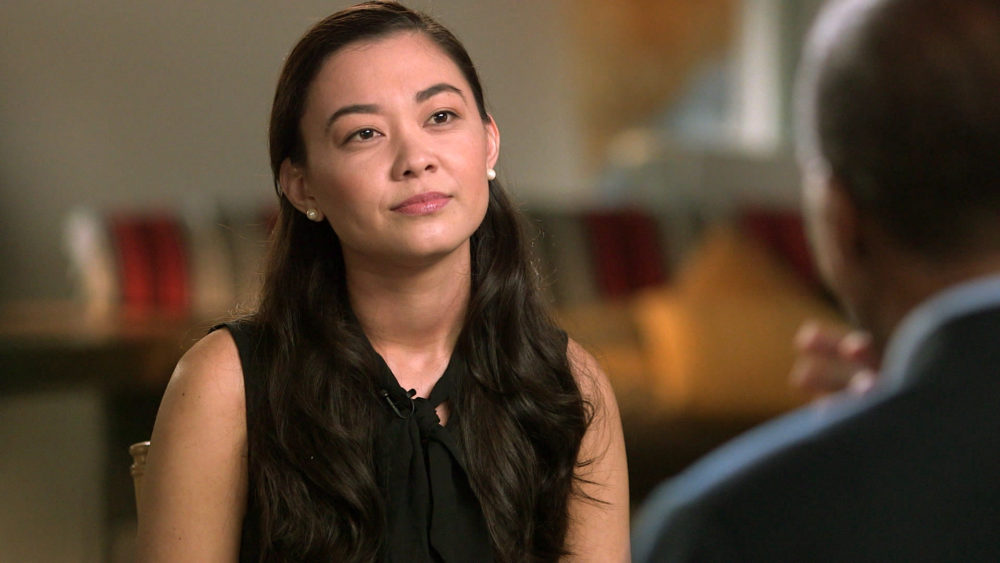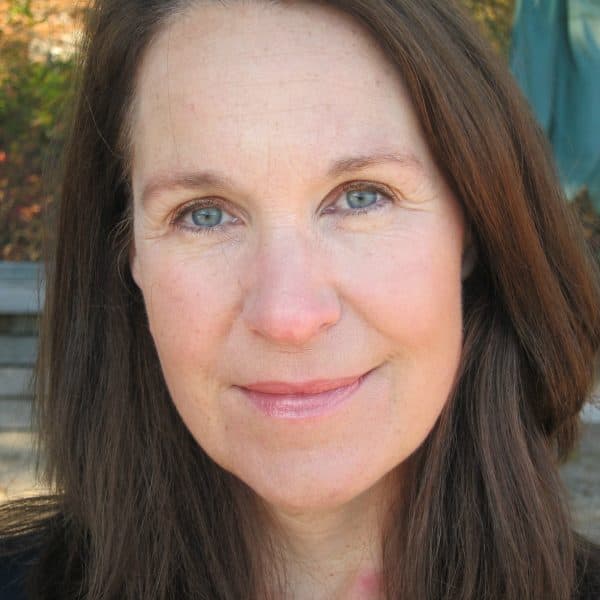Advertisement
Commentary
Chanel Miller And The New Power Of Women's Words

When the history of the #MeToo movement is written, it will focus on how survivors of sexual violence shifted the routine discrediting of victims. Through the power of their words, survivors placed themselves at the center of a movement that not only exposed abuse, but demanded accountability from abusers and those who enable them.
The visibility of millions of survivors and their rightful demand for justice and healing is now an inescapable part of how law and culture reckon with sexual abuse. #MeToo is making some workplaces and courts fairer to victims, but its most profound change is in how survivors see themselves and each other, and how they are heard when they speak out, which is, at least sometimes, as credible witnesses to sexual violence.
Chanel Miller is an important part of this history. Until she made her identity public, Miller was known only as “Emily Doe,” the author of a searing victim impact statement addressed directly to Brock Turner, who was convicted of three counts of felony sexual assault for violating her in 2015. First published in June 2016, Miller’s statement immediately went viral — 11 million people read it in just four days.
Turner was charged with raping an unconscious woman (Miller) — behind a dumpster — outside a Stanford fraternity house. Her statement, first published by “Buzzfeed” begins:
You don’t know me, but you’ve been inside me, and that’s why we’re here today.
Miller’s statement was raw. She recounted waking up in the hospital with no memory of the attack. She learned about the extent of her violation during the exam as she and two nurses removed pine needles from her hair, her skin and her genitals. And then she read about it online. She suffered anxiety and depression as her life and health were forcibly derailed.
Turner became emblematic of rapists who receive light sentences. He epitomized the bias that favors youthful, white, privileged defendants in rape and sexual assault cases. Judge Aaron Persky opined from the bench about the harm Turner’s conviction meant for his future and worried about the pain Turner might suffer during incarceration. The maximum sentence was 14 years. Persky gave Turner six months — and he served only three. Persky’s sentence meant Turner received a summer’s worth of punishment for what Turner’s father called “20 minutes of action.”
Tarana Burke founded a nonprofit in 2006 to empower women and girls of color who were victims of sexual violence. She called her new movement “Me Too.” In October 2017, #MeToo burst into public awareness — the hashtag shared by millions of people worldwide. As Harvey Weinstein’s sexual assaults and campaign of intimidation against his victims was exposed, victims in all walks of life and all genders shared their experiences of sexual violence, forcing a public reckoning.
In their new book, “She Said,” Jodi Kantor and Megan Twohey describe the challenges of breaking the Weinstein story and their role in grounding the #MeToo movement in well-sourced reporting in credible outlets. Powerful men were finally held accountable for sexual assaults that had previously been hushed up through non-disclosure agreements, silenced through threats and retaliation, or dismissed in the courts.
[#MeToo's] most profound change is in how survivors see themselves and each other, and how they are heard when they speak out
Given the swiftness with which #MeToo took hold, many have been puzzled by the conditions that enabled a new level of respect for victims of sexual violence to become a new normal. What changed?
Information campaigns about sexual harassment in the workplace and sexual assault on campus contributed to a growing awareness of the pervasiveness of abuse, but they did not make #MeToo happen. The frequency or quantity of sexual assaults also didn’t change. Nor did the life-long trauma that victims suffer from abuse by alleged rapists like Jeffrey Epstein and Harvey Weinstein, and convicted sexual predators Bill Cosby and Larry Nassar.
#MeToo is an episode in the history of advocacy that went viral. Survivors became visible to each other and the public as a collective. Women like Chanel Miller spoke with searing clarity about sexual assault, took on the injustice of rape culture and its minimization of sexual abuse, and demanded justice. Survivor testimony shifted the burden of shame away from victims and onto abusers, the courts that treat them with mere slaps on the wrist, and the enablers who value the reputations and futures of favored sons more than the girls and women those men violate.
Following this upsurge in accountability, women have been reporting sexual assault in greater numbers. Two years after Miller read her statement in court, Judge Persky no longer sits on the bench (Michele Dauber, a Stanford Law professor, spearheaded a successful campaign to recall him). Brock Turner lost his appeal and is a registered sex offender.
As Burke’s work has long shown, empathy between survivors and their supporters breaks through the isolation of shame. Speech is empowering. When Miller directly addressed Turner in her statement, he and Persky may not have listened, but millions heard her loud and clear. Like the power of the words “me too” to create community and restore connection, Miller inspired courage in other survivors with her words: You are not alone.
The power of the #MeToo movement — and I believe the promise of its continuation — is bigger than any single success or setback. #MeToo establishes a new context for hearing allegations of sexual abuse. In this new context, the lives, health and reputations of survivors matter as much as the powerful men they accuse.
Chanel Miller began her victim statement addressing her rapist, but she ended it by eloquently addressing other young survivors:
And finally, to girls everywhere, I am with you. On nights when you feel alone, I am with you. When people doubt you or dismiss you, I am with you. I fought everyday for you. So never stop fighting, I believe you. As the author Anne Lamott once wrote, ‘Lighthouses don’t go running all over an island looking for boats to save; they just stand there shining. Although I can’t save every boat, I hope that by speaking today, you absorbed a small amount of light, a small knowing that you can’t be silenced, a small satisfaction that justice was served, a small assurance that we are getting somewhere, and a big, big knowing that you are important, unquestionably, you are untouchable, you are beautiful, you are to be valued, respected, undeniably, every minute of every day, you are powerful and nobody can take that away from you. To girls everywhere, I am with you. Thank you.
Chanel Miller has made her identity and story public. Her memoir, “Know My Name,” publishes next week.
Meanwhile, Brock Turner is the literal face of rape in a college legal textbook.

